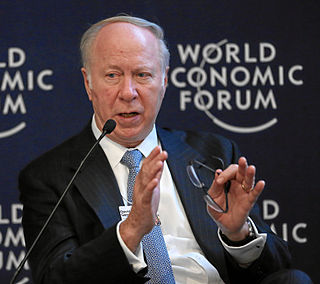A Quote by Sylvia Mathews Burwell
While we've made progress with our numbers, this will be a harder-to-reach group, and we have less money to do it.... Many people don't know or understand about the tax credit that they can receive. And so affordability is a barrier. We know that a disproportionate number of those who are still uninsured are young.
Related Quotes
I think one of the first steps - and I'm glad we were able to reach, again, a bipartisan agreement - is an accountability side. People are still shocked to find out that many of the same people that have been involved in really lying about the numbers in regards to wait time are still on the job. What we have done is we have come up with a crafted piece of bipartisanship that will, in fact, give the secretary the ability to fire those that have lied to him with an appeal process built in. I think that that will send a clear message to those who want to fudge the numbers.
Fewer and fewer people are paying larger and larger percentage of the tax burden, as you know, almost half the people pay no income taxes at all. We're going to have more people in the wagon than we got pulling the wagon before long and that's not going to work. Those jobless numbers, you know, go hand-in-hand with those tax numbers.
It's great that the Internet can enhance and speed up our communications and that computers can do all the things they do. It's fabulous. At the same time, it changes our priorities. For example, before I would always remember people's telephone numbers and now I don't know anyone's number. So what happens if computer systems go down but you still have landlines? Well, I couldn't call anyone because I don't know anyone's number.
I understand why people are discouraged about Iraq. I can understand that. We live in a, you know, world in which people hope things happen quickly. And this is a situation where things don't happen quickly because there's, you know, a very tough group of people using tactics - mainly the killing of innocent people - to achieve their objective, and they're skillful about how they do this. And they also know the impact of what it means on the consciousness of those of us who live in the free world. They know that.
The answers to our problems don't lie beyond our reach. They exist in our laboratories and universities; in our fields and our factories; in the imaginations of our entrepreneurs and the pride of the hardest-working people on Earth. Those qualities that have made America the greatest force of progress and prosperity in human history we still possess in ample measure.
They know your name, address, telephone number, credit card numbers, who ELSE is driving the car "for insurance", ... your driver's license number. In the state of Massachusetts, this is the same number as that used for Social Security, unless you object to such use. In THAT case, you are ASSIGNED a number and you reside forever more on the list of "weird people who don't give out their Social Security Number in Massachusetts."
The world of money, of numbers and stock markets and interest rates and credit cards, seems on the surface about as far as it could be from the world of spirituality, of seeking meaningful answers to the big questions of life. ... But these two worlds must flow in and out of each other, because it takes both money and spiritual understanding to sustain it. Truly speaking, what determines where our money with its awesome power will go, and what it will do for ourselves and others? If we listen, those answers come from the center of our being, from who we really are.
In short, the early receivers of the new money in this market chain of events gain at the expense of those who receive the money toward the end of the chain, and still worse losers are the people (e.g., those on fixed incomes such as annuities, interest, or pensions) who never receive the new money.
If you are starving and young and in search of answers as to why your life is so difficult, fundamentalism can be alluring. We know this for a fact because former members of Boko Haram have admitted it: They offer impressionable young people money and the promise of food, while the group's mentors twist their minds with fanaticism.




































